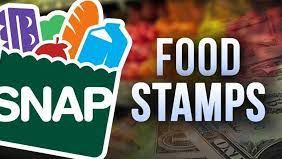Food Benefits During a Disaster
Does Your Client Qualify?

The loss of property is not the only issue affecting our clients. General destruction or simple electricity loss can ruin all the food in the home, food that our clients may struggle to replace. D-SNAP can help.
What is D-SNAP?
The Disaster Supplemental Nutrition Assistance Program (D-SNAP) gives food assistance to low-income households with food loss or damage caused by a natural disaster. It offers short-term food assistance benefits to families recovering from a disaster. D-SNAP helps when people return to their homes and have access to electricity and grocery stores.
The U.S. Department of Agriculture's Food and Nutrition Service (USDA FNS) must approve states to operate D-SNAP in a disaster area. The President must declare Individual Assistance for the disaster area, and the state must request approval to operate D-SNAP for the program to be available to your clients.
My client lost all the food in their home due to the disaster; what now?
It depends on whether or not the client was already receiving food benefits or not.
If the client is already on Supplemental Nutrition Assistance Program (SNAP), Texas Health and Human Services Commission (the agency responsible for SNAP) generally releases automatic, mass replacement of SNAP benefits to SNAP homes in the declared counties to replace food purchased during the month of the disaster.
During Harvey, replacement benefits were granted to all regular SNAP households using an automated credit to their Electronic Benefits Transfer (EBT) cards. The government also waived the 10-day reporting requirement for the replacement of food purchased with SNAP benefits destroyed in affected counties. Historically, when the 10-day deadline was waived, affected households had approximately 30 days to report food losses to their local offices and request replacement benefits.
If the client was not on SNAP, the Disaster SNAP The Disaster Supplemental Nutrition Assistance Program offers short-term food assistance benefits to recovering families. The TX HHSC sets a limited period for you to file a D-SNAP application. If you qualify, you will get benefits on an EBT card or Lone Star Card. The EBT works like a debit card at most grocery stores. D-SNAP accepts applications for generally seven days. If you qualify, you are issued funds to help meet your food needs for 30-days. Program requirements vary by state.
What is the difference between the Supplemental Nutrition Assistance Program (SNAP) and Disaster SNAP or D-SNAP?
Once a person applies for D-SNAP, they can expect a small delay but should receive benefits within 72 hours. D-SNAP is available to households not normally eligible for SNAP due to their disaster-related expenses, including lost income, property damage, expenses due to relocation, and food loss due to power outages.
Eligible households receive one month of benefits equal to the maximum amount they would typically receive under SNAP. Like regular SNAP, D-SNAP benefits use the Lone Star card (EBT card) to purchase food at most grocery stores.
How does a person qualify for D-SNAP?
They may qualify for D-SNAP benefits after a disaster in Texas if they: do not get regular SNAP benefits, live in the area at the time of the disaster, and have at least one of the approved disaster-related effects or expenses.
Disaster-related expenses include lost or no access to income, home or business repairs, temporary shelter or evacuation expenses, home or business protection expenses, cost to replace personal or household items, clean-up expenses, personal injury, and funeral expenses.
Your client must also meet the disaster gross income limits. Please note the disaster income limits are set each year at the deferral level based on household size. Texas also adds a standard disaster-related expense deduction to the federal restrictions. With this, your client may qualify even if your income is above federal limits.
Find out more at https://www.fns.usda.gov/snap/dsnap/state-agencies-partners-resources
Belinda J. Martinez - Disaster Pro Bono at Lone Star Legal Aid